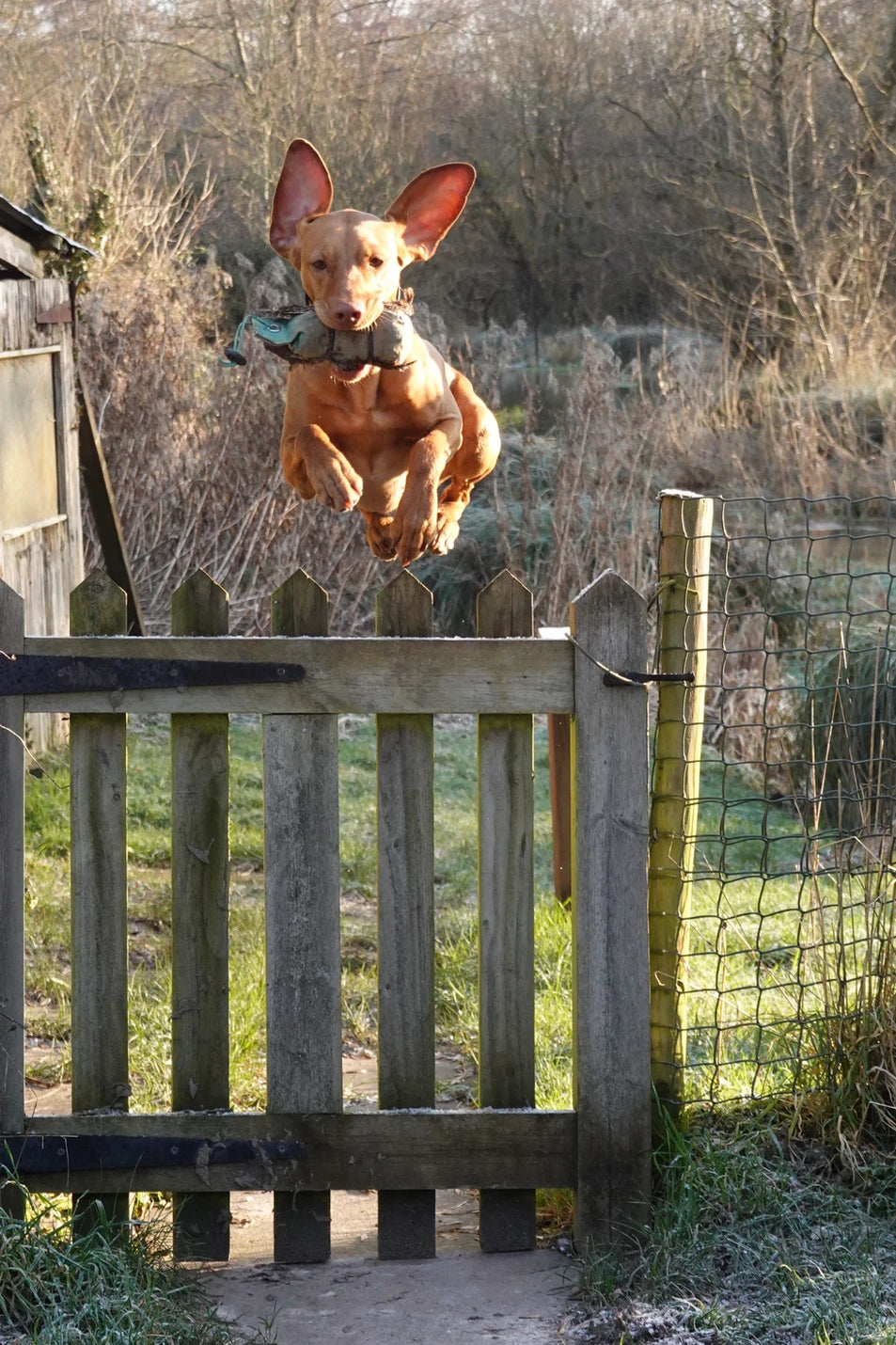We had no idea that the Novice Stake in Norfolk, by kind invitation of Lord Fisher, would be the last of our season - the remainder falling victim to tightening COVID restrictions.
We were running number one, and I had mixed feelings, as it became apparent we would be starting in sugar beet. The crop provides enough cover to hold game whilst ensuring everything is on display. This is somewhat of a double-edged sword; ideal if things are going well, not so good if things start to unravel, which sugar beet is renowned for.
The judges asked me to work up the edge of a vast field, not letting Islay enter the wood on the left, or go beyond the furthest of the four guns on the right. She set off enthusiastically, and each time she got near the wood 50 yards to my left, I pipped the whistle whereupon she turned smartly. I did the same when she got beyond the far gun, where occasionally she ‘back cast’, rather than moving forward before starting her next cast across the wind. If the wind direction there, was the same as where I was, this would be incorrect use of the wind; I hoped the judges would give her the benefit of the doubt.
She soon settled into a rhythm only requiring the odd pip from me. A hen pheasant flushed at the edge of her beat; I didn’t think she should have winded it, but it was close, and again I hoped the judges would see it our way. As she sat and acknowledged the departing bird, I tentatively looked to the judges to see if we should carry on, or whether that was the end of our trial. They indicated we should continue and I breathed a sigh of relief.
A few casts later she started taking a bit of scent, quickly followed by a rock solid point. I beckoned the guns into position, and when requested, asked her to ‘produce’. She was hesitant, a sure sign there was game on the end of her nose, and moments later a cock pheasant exploded into the still low sun. There were four shots but nothing down, a shame, because I’m sure she would have marked the bird and made a straight forward retrieve. Nonetheless I was pleased with our run, we’d had a good hunt and point, and only needed to stay out of trouble and get a retrieve to fill our card.
We could now relax, chat, and watch the other eleven dogs. The sugar beet claimed a few that were deemed to be out of control, or took the initiative, and retrieved unbidden. On our second run, again in sugar beet, she hunted well but did not encounter any game. Islay’s final run was in conifers with a bracken understory. She hunted like a demon taking on the cover, whilst remaining responsive, which I hoped would impress the judges. An un-pointed bird was shot out to the left with the gun reporting a hen pheasant down 100 yards ahead. I sat Islay as the judges conferred. I could only see about ten yards ahead, so was delighted when they asked me to continue hunting, until we got a bit closer. When they did ask for the bird, she ran straight out and picked it cleanly, no drama, but also not an opportunity to impress.
Three dogs were called to the water. The requirement for dogs to demonstrate a willingness to enter and retrieve from water, before they can gain an award, is peculiar to the hunt point retrieve group. I have no problem with the principal, but all too often, as on this occasion, it involves driving to a different location and a considerable delay. This means getting a tired dog, out of its nice warm bed, and persuading them it’s a good idea to go for a sunset swim. Islay did what was required but understandably looked a little reluctant. She provided some excitement by carrying the bird by its head, swinging to and fro, as she approached me. Luckily, I managed to catch the retrieve before it hit the deck, as failure to retrieve to hand is an eliminating fault.
First place was given to a handsome Vizsla, and we were delighted with our second place and gun’s award, in only her third trial.



